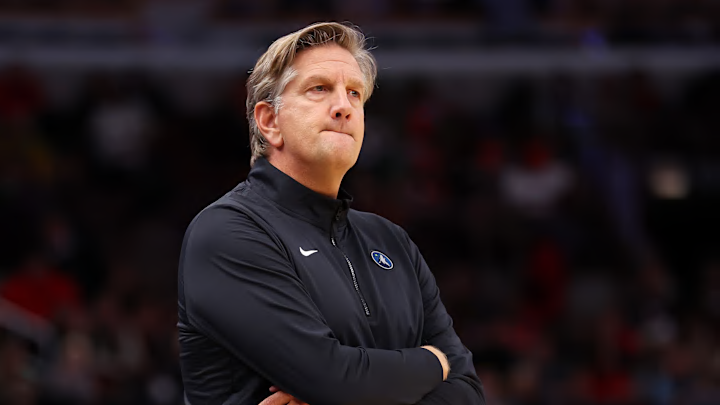By all accounts, Chris Finch is the best coach in the Minnesota Timberwolves franchise history. His 56.6 winning percentage is the highest in franchise history, and his 21 playoff wins are also the highest in team history. However, even great coaches have room for improvement. For Finch, it's about using his bench more.
Last season, the Timberwolves ranked 24th in bench minutes and 19th in bench points. Additionally, during Finch's four full seasons as the Wolves' head coach, they have only ranked above average in bench minutes once. With Naz Reid and Donte DiVincenzo, the Wolves have two of the best bench players in the league. Regardless, Finch traditionally doesn't play more than eight players.
The Oklahoma City Thunder, the reigning champs, and the Indiana Pacers, the reigning runner-ups, both leaned into their depth. In recent years, depth has been a common theme with many elite teams. Given this, paired with the departure of Nickeil Alexander-Walker and Mike Conley aging, the Wolves will have to lean into their collective depth.
Finch seems open to expanding his rotation
Despite his history of running a tight rotation, Finch seems open to expanding his rotation this season. Earlier in the offseason, Finch openly stated that he plans to expand the Wolves' rotation to include up to 10 players. Undoubtedly, this is an encouraging sign.
He also mentioned playing at a faster pace, which would suit both Anthony Edwards' skill set and some of the young bench players, including Terrence Shannon Jr. and Rob Dillingham. Finch's comments this offseason show that he is adaptable, which is a common trait of many great coaches.
Expanding the rotation is connected to developing the Timberwolves' young talent
A key part of expanding the rotation will be giving the young players ample opportunities. Shannon, Dillingham, and Jaylen Clark can all make up for the loss of Alexander-Walker, and Dillingham will help as Conley ages. Clark actually played the most out of this group. Still, Dillingham and Shannon were buried on the Wolves' bench during their rookie season.
Despite limited minutes, both players showed flashes, especially as scorers last season. Notably, Shannon scored 35 points in the final three games of the Western Conference finals, and Dillingham averaged 15.3 points per 36 minutes. Dillingham's perimeter shot creation is the exact skill the Wolves need. Shannon provides scoring, versatility, and energy. To maintain success, for the future, Minnesota must develop these young players.
At 25, Shannon is primed to handle big minutes. While there may be some growing pains with the 20-year-old Dillingham, his upside is undeniable, and he has already shown plenty of positive flashes. Undoubtedly, expanding the rotation and giving the young players some extra opportunities will be a key adjustment for Finch. Luckily, he seems ready to do just that.
